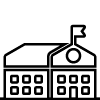
As a parent, you naturally want the best education for your child. An education that goes beyond rote learning and equips them with the skills to thrive in a dynamic world. If you’re looking for a school that prioritizes this kind of overall development, then Kairos International School, with its globally recognized Cambridge International Curriculum (IGCSE), might be the perfect fit.
Kairos International School: Fostering Well-Rounded Individuals
Located in the vibrant Financial District, Kairos International School isn’t just about academics. They understand that a child’s growth encompasses intellectual, social, and emotional well-being. Their philosophy revolves around nurturing curious, confident, and responsible global citizens.

Core Elements of the Cambridge Curriculum: Building Lifelong Learners
The Cambridge International Curriculum, offered by Kairos, is more than just a set of textbooks. It’s a framework designed to ignite a love for learning and equip students with the skills they need to succeed in the 21st century. Let’s delve deeper into some of the core elements that make this curriculum so impactful:
- Focus on Inquiry-Based Learning: Imagine classrooms where your child isn’t just passively absorbing information but actively involved in the learning process. The Cambridge curriculum encourages curiosity and exploration. Students are presented with questions and problems that spark their interest, prompting them to research, analyze, and come up with their own solutions. This fosters critical thinking, problem-solving skills, and a genuine desire to learn.
- Developing Strong Subject Knowledge: A solid foundation in core subjects is crucial. The Cambridge curriculum ensures your child develops a deep understanding of essential subjects like Math, Science, English, and Social Sciences. This strong base prepares them not only for higher education but also equips them with the knowledge they need to navigate the complexities of the world around them.
- Nurturing Lifelong Learners: The world is constantly evolving, and the Cambridge curriculum recognizes this. It goes beyond just preparing students for exams. It instills a love for learning that extends far beyond the classroom. Students learn research skills, independent thinking, and the ability to adapt to new information. This empowers them to become lifelong learners, ready to embrace challenges and opportunities throughout their lives.
- Collaboration and Communication: In today’s interconnected world, teamwork and communication are essential skills. The Cambridge curriculum fosters collaboration through group projects, presentations, and discussions. Your child will learn to work effectively with others, express their ideas clearly, and listen attentively to diverse perspectives. These skills will not only benefit them in school but also prepare them for success in future careers and personal relationships.

Cambridge Early Years
- The Cambridge Early Years programme is designed for children aged 3 to 6.
- It helps them develop knowledge, understanding, and social skills.
- The curriculum is holistic, focusing on the entire child’s development.
- It connects children’s development with the world and people around them.
- The curriculum uses a spiral approach, revisiting topics and skills at deeper levels over time.
Communication, Language & Literacy
- Focuses on speaking, listening, reading, and writing.
- Uses fun and engaging activities.
- Aims to ignite a lifelong curiosity for learning.
Creative Expression
- Encourages creative activities like painting, singing, and dancing.
- Combines skills and cognitive processes.
- Helps children express themselves creatively.
Mathematics
- Introduces shapes, sizes, and numbers in a fun way.
- Uses games and activities to make learning mathematics enjoyable.
- Helps children develop counting and number skills.
Social & Emotional Development
- Promotes social skills through activities that involve laughing and helping each other.
- Aims to build healthy mental development.
- Focuses on building stable emotional strength for lifelong relationships.

Cambridge Primary Program
- Students in stages 1 to 5 study a comprehensive curriculum.
- Subjects include English, Mathematics, Science, Second Language, ICT, Global Perspectives, and Social Studies.
- Emphasis on critical thinking, research, analysis, evaluation, communication, and collaboration.
Subjects:
- English
- Mathematics
- Science
- ICT (Information and Communication Technology): Cultivates crucial ICT skills.
- Second Language: Options: Hindi and French.
- Social Studies: Taught from grade 3 onwards.
- Global Perspectives: Focuses on critical thinking and enhances research, analysis, evaluation, communication, and collaboration skills.
Assessment:
- Formative and Objective-Based Reports: Periodic reports on student progress.
- Summative Assessments: Progression Exams at the end of each term.
- Cambridge Primary Checkpoint Examination:
- Subjects: English, Mathematics, and Science.
- Designed to be fair, valid, reliable, and practicable.
- Focuses on deep subject knowledge, conceptual understanding, and higher-level thinking skills.
Assessment Options:
- Cambridge Progression Tests: Marked in school.
- Cambridge Primary and Secondary Checkpoint: Marked by Cambridge examiners.
- Each learner receives a statement of achievement and a diagnostic report.
- Cambridge Global Perspectives assessment marked by teachers and moderated by Cambridge.
Active Learning Classroom:
- Students play an important role in their own learning process.
- They build knowledge and understanding through opportunities provided by their teacher.
- Encourages learners to analyze, evaluate, and synthesize ideas.
- Promotes a happier and more engaging classroom environment.
Cambridge Early Years (Lower Secondary: Stages 6 to 8)

Subjects Offered:
- English
- Mathematics
- Science
- ICT (Information and Communication Technology)
- Second Language (Hindi, French, or Spanish)
- Social Studies
- Global Perspectives
Assessment:
- Formative Assessment: Day-to-day activities, Presentations, Projects, Lab work
- Summative Assessment: Progression Examinations at the end of each term
- Cambridge Checkpoint Examination (at the end of Stage 8) for English, Mathematics, and Science
Cambridge Checkpoint Examination:
- A diagnostic assessment
- Checks learning and progress
- Provides detailed feedback on student strengths and weaknesses
- Compares individuals and classes
Technology Integration:
- Everyday use of technology to keep students engaged
- Enhances classroom happiness
Skill Development Programs:
- Readathon Program: Enhances reading skills
- Reading for pleasure is linked to better social, emotional, academic, and vocational outcomes
- Journal Writing: Enhances writing skills
Parental Communication:
- Teachers communicate with parents about student performance
- Messages, homework, worksheets, and photographs are shared through the My Class Board platform
Grand Presentations:
- Students present their learning to parents through presentations
Project-Based Learning (PBL):
- Instructional approach to develop knowledge and skills
- Engages students in projects based on real-world challenges
- Encourages deeper learning and college/career readiness skills
Collaborative Learning:
- Skype calls with international schools
- Online concept tests for rigorous practice
Cambridge Secondary 2 (Stage 9 & 10)
Preparation for IGCSE:
- Focuses on preparing students for the Cambridge International General Certificate of Secondary Education (IGCSE).
- Students participate in the International Certificates in Education (ICE) awards.
- Requires students to take subjects from five curriculum areas specified by Cambridge.
Two-Year Curriculum:
- Provides a comprehensive curriculum over two years.
- Emphasizes learner-centric and enquiry-based learning approaches.
- Develops skills in critical thinking and problem-solving.
Subject Groups Offered:
- Group 1: Languages : English as First Language, Hindi, French, and Spanish as Second Language
- Group 2: Humanities: Economics, History
- Group 3: Sciences: Physics, Chemistry, Biology, Combined Science
- Group 4: Mathematics: Extended Math
- Group 5: Technology: Information and Communication Technology (ICT)

Cambridge Advanced Curriculum
Educational Stages (16 to 19):
- Global Recognition: Recognized by universities and employers worldwide.
- Cambridge International A Levels and A+: Offers 55+ subjects.
- Cambridge Pre-U: Offers 20+ subjects.
- Cambridge ICE Certificate: Provides a prestigious academic credential.
- Academic Horizons: Expands students’ academic opportunities.
- Notable Accomplishments: Enables students to achieve significant academic achievements
Achievements Kairos International School:
Kairos International School has been recognized as the Best Emerging School in Hyderabad by Times School Rankings 2022 and has received the Times Education Excellence Awards 2022 for Innovation in Collaborative Learning. These accolades reflect the school’s commitment to providing top-notch educational experiences and its effectiveness in implementing the Cambridge curriculum.
Investing in Your Child’s Future:
Choosing the right school for your child is a significant decision. Kairos International School’s Cambridge curriculum offers a unique blend of academic rigor, inquiry-based learning, and a focus on developing well-rounded individuals. By nurturing critical thinking, communication, and collaboration skills, the curriculum empowers your child to become confident, lifelong learners, prepared to embrace the challenges and opportunities of the future.
Ready to Learn More?
If you’re interested in learning more about Kairos International School and how its Cambridge curriculum can benefit your child, visit their website or schedule a school visit. Talking to the teachers and getting a firsthand feel for the learning environment can be a great way to make an informed decision. Remember, the right school environment can play a pivotal role in shaping your child’s future.
Parent Reviews on Kairos International School
Reviewed on October 9, 2024
Reviewed on August 21, 2024
Reviewed on June 29, 2024
Reviewed on June 29, 2024
Reviewed on June 26, 2024


